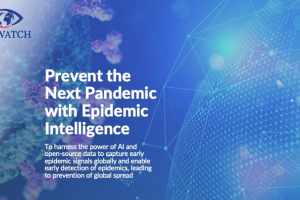
Biography
I am a clinical epidemiologist and bioinformatician by background. After completing my MBBS and MD in Internal Medicine at Christian Medical College, Vellore, India, I completed my MPhil in Epidemiology and Biostatistics at the University of Cambridge in 2010, followed by a PhD in examination of genetic factors associated with disease in genetically diverse populations (2013). My subsequent work as a post-doctoral fellows at the Wellcome...view more
I am a clinical epidemiologist and bioinformatician by background. After completing my MBBS and MD in Internal Medicine at Christian Medical College, Vellore, India, I completed my MPhil in Epidemiology and Biostatistics at the University of Cambridge in 2010, followed by a PhD in examination of genetic factors associated with disease in genetically diverse populations (2013). My subsequent work as a post-doctoral fellows at the Wellcome Sanger Institute focused on the study of population history, and historical migration across Africa (as co-lead of the African Genome Variation Project). As a senior staff-scientist at the Wellcome Sanger Institute, I co-led the Uganda Genome Resource Project (Gurdasani et al., Cell, 2019), studying genetic determinants of disease across ethnically diverse populations. As a Senior Lecturer in Machine Learning at Queen Mary University of London, and Turing Fellow, I used machine learning approaches for prediction of outcomes in health, and genomic data. I work closely with Genomics England and co-lead the GeCIP project on prediction loss of function effects on health and disease within Genomics England. My recent work has focused on using machine learning and deep learning approaches in health for clustering of patient trajectories and better prediction of outcomes (Alaa, Gurdasani et al, Nature Machine Intelligence). My research interests range from the development of new NLP and machine learning methods for data mining, and phenotype clustering (e.g. in Long COVID) to developing new pipelines for drug discovery using large-scale multi-dimensional data.
My current work focuses on using Large Language models to detect early warning signals for epidemics in vast amounts of open-source data (EPIWATCH- https://www.epiwatch.org/). I work within the EPIWATCH team (Biosecurity Programme led by Prof Raina MacIntyre), leading the NLP team, epidemiology research team, and software development teams within the Programme. Our work focuses on using state-of-the-art Large Language Models (e.g. GPT-3.5, LlaMA, Orca, Platypus) for text mining, classification, named entity recognition, relational extraction, and information retrieval within the domain of public health. A key focus of the team is to developing novel LLMs for public health by supervised training on the EPIWATCH database of curated labelled data from epidemic surveillance operational since 2016.
I hold an honorary Senior lecturer in Machine Learning position at the Queen Mary University of London, UK.
My Awards
- Oracle Research Project Cloud compute award ($21,000)
- NIHR AI in Multimorbidity Development Award (£118,000), 2021
- UKRI/Rutherford Fellowship (£319,509)
- Cambridge-Africa Alborada Research Fund (£19,970)
- Award of the Cambridge Commonwealth Scholarship (£36,000)
- Young Investigator Award for the Conference of Retrovirology and Opportunistic Infection
- Distinction in MPhil Epidemiology
- First rank in M.D. Medicine
- Dr. R. Rajam Commemoration Gold Medal for First rank in MD Medicine
- Dr. R. Vijayalakshmi Gold Medal for University First rank in MD Medicine
- Prof. Dr. G. B. West Endowment Silver Medal for University First Rank in MD Medicine
- Iraiyadimai E.A. Jiavudeen Endowment Prize for First Rank in MD Medicine
- Kutumbiah Prize in Clinical Medicine
- Second Rank in first M.B.B.S
- Third Rank in second M.B.B.S
- Fourth rank in Final M.B.B.S
- Abhyankar Memorial Prize in Physiology
- Thomas Dina Prize for the first rank in Physiology
- Philip Simmons Prize in Psychiatry
- Gwenda Lewis Prize in Anaesthesiology
- Victor C Rambo Prize for first rank in Ophthalmology
- First Certificate of Honor in Biochemistry, Physiology, Anatomy, Pharmacology, pathology, Microbiology and Ophthalmology
- Second Certificate of honour in Oto-Rhino-Laryngology, Community Medicine and Forensic Medicine
- Second Prize in the All India Apollo Annual Medical Quiz
My Research Activities
Using LLMs for Open-Source Intelligence (OSINT)
My Research Supervision
Supervision keywords
Areas of supervision
My current areas of research supervision focus on Natural Language Processing and Machine Learning in epidemic surveillance, health, genomics and drug discovery. I’m looking for talented and motivated PhD students and postdoctoral candidates interested in machine learning/deep learning methods and applications to large-scale unstructured open-source, clinical and genomic data to join my team. Please email me if you are interested.
Currently supervising
I currently supervise 4 post-doctoral researchers, 3 phD students, 3 Masters students and 2 BSc(Med) Hons students at UNSW with a focus on using AI for epidemic surveillance.
My Engagement
-
Current member of OzSAGE
-
Former member of UK Independent SAGE
-
>100 interviews across the BBC, ITV, Sky News, Bloomberg TV, CNN, ABC, CBC, DW News, EuroNews, and podcasts, including with the Economist, the Guardian, the Naked Scientist
-
Opinion pieces for the Guardian, iNews, Foreign Policy Magazine, the Conversation, the Byline Times.
-
Comments and quotes for the Guardian, New York Times, WSJ, Sky News and New Statesman.
-
Patient and public engagement for severe mental illness multimorbidity research
-
Patient engagement for COVID research and policy (Long COVID Kids, Clinically Vulnerable Families, UK, Parents United, SafeEd4All)
-
Advocacy for a better culture in academia (@dobetteracademia)
-
Given public evidence to the UK parliamentary committee for COVID-19 pandemic response (APPG) and presenting updates and evidence at Independent SAGE
Location
Contact
Publications
ORCID as entered in ROS
Research Activities
EPIWATCH®️ is an advanced AI system for real-time global health intelligence. It…
